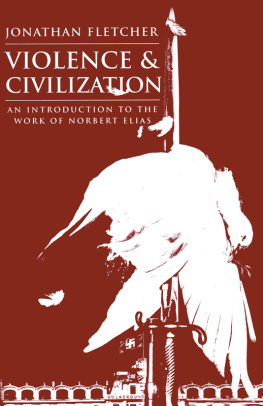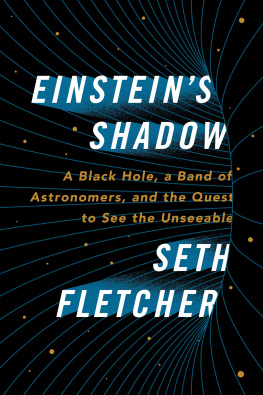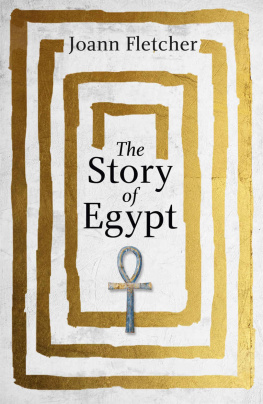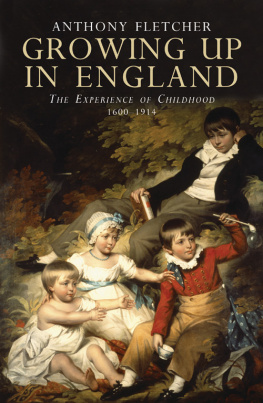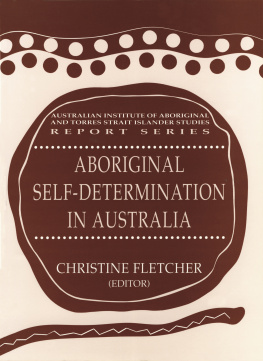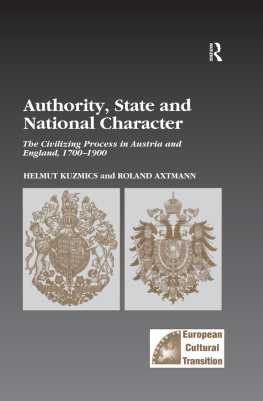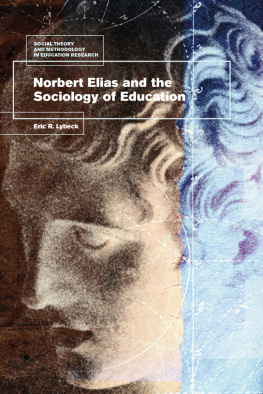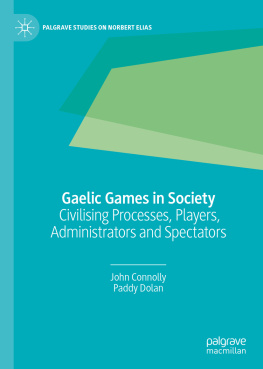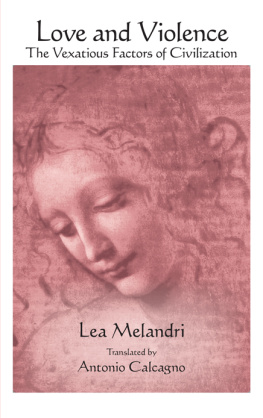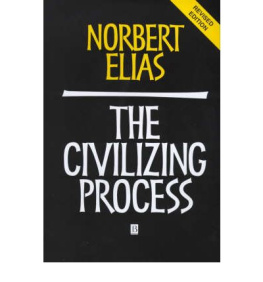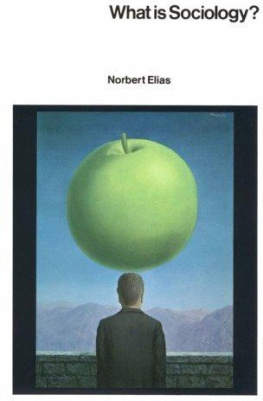Copyright Jonathan Fletcher 1997
The right of Jonathan Fletcher to be identified as author of this work has been asserted in accordance with the Copyright, Designs and Patents Act 1988.
First published in 1997 by Polity Press in association with Blackwell Publishers Ltd.
Reprinted 2005
2 4 6 8 10 9 7 5 3 1
Polity Press
65 Bridge Street
Cambridge CB2 1UR, UK
Polity Press
350 Main Street
Malden, MA 02148, USA
All rights reserved. Except for the quotation of short passages for the purposes of criticism and review, no part of this publication may be reproduced, stored in a retrieval system, or transmitted, in any form or by any means, electronic, mechanical, photocopying, recording or otherwise, without the prior permission of the publisher.
Except in the United States of America, this book is sold subject to the condition that it shall not, by way of trade or otherwise, be lent, re-sold, hired out, or otherwise circulated without the publishers prior consent in any form of binding or cover other than that in which it is published and without a similar condition including this condition being imposed on the subsequent purchaser.
ISBN 978-0-7456-6628-0 (Multi-user ebook)
A CIP catalogue record for this book is available from the British Library and the Library of Congress.
Typeset in 10 on 12 pt Palatino
by Ace Filmsetting Ltd, Frome, Somerset
Printed and bound in Great Britain by Marston Book Services Limited, Oxford
This book is printed on acid-free paper.
For further information on Polity, visit our website: www.polity.co.uk
CHAPTER ONE
Introduction
On 1 September 1939, German troops invaded Poland on the orders of Adolf Hitler. The same year saw the publication in Switzerland of a two-volume work entitled The Civilizing Process. Its author, Norbert Elias, was a German of Jewish descent who had already fled his homeland with the ascent of the Nazis in 1933. By 1941, Eliass parents had lost their lives under Nazi rule: his father in Breslau and his mother in the Auschwitz concentration camp, although the true character of the regime was only to emerge clearly with its defeat by Allied forces.
The processes traced in The Civilizing Process seemed irrelevant to many, given events which were then overtaking continental Europe. There was simply no market for such a book, especially one written by a German Jew, and indeed, only a small number of copies were sold. It appears that few people were willing to read a work on civilization at the very time when the nations of the Western world were witnessing the eclipse of all that the term was thought to represent. In such a context it does seem surprising that Elias had completed a long-term study of state formation and the development of manners among the European secular upper classes in conjunction with the term civilization. The seeming contradiction between the process identified by the books title and the violent events of more recent European history form one of the main themes of this book.
Elias studied medicine, philosophy and later sociology at the universities of Breslau and Heidelberg, subsequently becoming Karl Mannheims assistant at the Department of Sociology at the University of Frankfurt. After fleeing Germany and spending some time in Paris, he moved to England in 1935 and remained there until the mid 1970s, working as a guest lecturer at the London School of Economics and later as Reader in Sociology at the University of Leicester. Elias received the title of professor from the University of Ghana in the late 1960s, and for the last fifteen years of his life he lived and worked in Amsterdam, where he died on 1 August 1990, at the age of 93. With such a biography, it is not surprising to learn that Elias was interested in developing a sociological understanding of violence and violence controls in twentieth-century European societies more generally, and of the National Socialists and the Holocaust in particular. But it was not until some twenty years after having left Germany that he wrote in any detail about events in the Third Reich.
It is no exaggeration to say that, along with other murderous episodes, two world wars and the Holocaust in Germany have shattered many of the connotations which hitherto seemed to enshroud the concept of civilization with an aura of mystique. These connotations were carried over from certain beliefs generated in the eighteenth century and earlier, accompanying the rise of industrialism, technological innovation, colonization and a belief in the inherent progress associated with such developments. The events of the twentieth century have exposed many of these beliefs as delusions. A sense of caution and even despondency has resulted. In turn, this general attitude has brought forth a strong reaction against the very use of the word civilization. Indeed, barbarization would seem to many to be a more appropriate term with which to characterize the twentieth century so far.
As regards the work of Norbert Elias, this general reaction has often taken the form of dismissive and sometimes even tasteless commentaries (see respectively Leach 1986: 13; and Hunt 1988: 30). Others have described his theory of civilizing processes variously in terms of its simplicity (Lasch 1985: 714), evolutionism (Lenhardt 1979: 127; Giddens 1984: 241), its inability to account for the barbarism of the present century (Coser 1978: 6; Buck-Morss 1978: 1879), or even its ethnocentrism and racism (Blok in Wilterdink 1984: 290). can only be understood in the context of the pervasive sense of disillusionment which has come to permeate Western culture. But to what extent are they an accurate assessment of Eliass perspective? Or is the strength of these responses an over-reaction?
In criticizing Elias for his use of the terms civilization or civilizing process, many writers have overlooked the implications of his ideas for developing an understanding of breakdowns in civilization. The attention to violence and its controls lies at the centre of his theory, and this book seeks to clarify the insights provided by Eliass approach with respect to the notions of civilizing and decivilizing processes. It also includes a critical assessment of some of Eliass main ideas on violence and its controls. A considerable amount of space is given to exposition, particularly with respect to Eliass work in The Germans. I attempt to provide clear, accurate summaries of Eliass comments on specific themes to do with violence, civilization and decivilization, themes which are central to an understanding of the broad spectrum of Eliass writing. This book therefore serves as an introduction to his work as a whole. Needless to say, it is not a substitute for reading Eliass books and articles themselves.
Even this focus on violence and civilization, however, is a broad enough task in relation to Eliass work. Whilst seeking answers to several key questions which I pose below, I have therefore restricted the scope of this book to include only some examples Elias draws from England, providing a comparative contrast to his use of examples from Germany up until the end of the Second World War. Apart from lack of space, one important reason for not considering Eliass work on Germany after 1945 was that I wanted to understand how far his approach is relevant to an understanding of Nazism. Certainly, Eliass work on the civilizing process is far from being the product of blind naivety to the world at the time of the books production in the 1930s. But the extent to which it was in fact inspired by a pressing need to develop a more detached understanding of social processes including the rise of Nazism and the barbarization of the twentieth century has remained obscured, particularly in the Anglo-American world, for a variety of reasons. Among others, these reasons include Eliass idiosyncratic pattern with respect to the publication of his work; the intrinsic complexity of the synthesis to which he sought to contribute, a synthesis that is sociological, psychological, historical and equally theoretical and empirical; and the fact that his approach did not fit in with the philosophical, present-day orientation which overtook British sociology during the 1960s. This perceived inability to account for reversals of civilizing processes may also result from the fact that Elias tended to focus on civilizing processes rather than their deterioration, leading in part to the widespread misunderstanding of his theory as teleological, evolutionary and overly optimistic.
Next page
